|
|
|
Книги издательства «Oxford University Press»

|
HIV/AIDS is without doubt the worst epidemic to hit humankind since the Black Death. The first case was identified in 1981; by 2004 it was estimated that about 40 million people were living with the disease, and about 20 million had died. Despite rapid scientific advances there is still no cure and the drugs are expensive and toxic. Because of controversies and taboos surrounding safe drug usage and prostitution, the numbers of people infected continues to rise. However, it is in the developing world and especially parts of Africa that the real catastrophe is unfolding. In some of the worst affected countries life expectancy has plummeted to below 35 years, which has led to a serious decline in economic growth, a sharp rise in orphaning, and the imminent collapse of health care systems. The news is not all bleak though. There have been unprecedented breakthroughs in understanding diseases and developing drugs. Because the disease is so closely linked to sexual activity and drug use, the need to understand and change behaviour has caused us to reassess what it means to be human and how we should operate in the globalising world. This Very Short Introduction provides an introduction to the disease, tackling the science, the international and local politics, the fascinating demographics, and the devastating consequences of the disease, and explores how we have — and must — respond. |

|
Psychiatry is now a highly visible activity — care in the community, compulsion, suicide, drug and alcohol abuse mean that few people are not touched by it. Indeed one in four of us will consult a psychiatrist in our life time. This book explains what psychiatry is, and what it is not. It starts with the identification of the major mental illnesses and why they are no longer considered just variations of normality. It charts the rise of the Asylum and its demise with the developments of Care in the Community, and the flourishing of psychoanalysis and its later transformation into more accessible psychotherapies. More than any other branch of medicine psychiatry has been attacked and criticised. There is a long catalogue of abuses — from mundane neglect and bizarre treatments through to political abuse by totalitarian regimes. Modern psychiatry too brings with it new controversies such as the medicalization of normal life, the power of the drug companies and the use of psychiatry as an agent of social control.The book does not shy away from outlining these issues but provides the reader with a clear understanding of what psychiatry is capable of, and what it is not capable of, so that they can draw their own conclusions. |
|
Simon Critchley's Very Short Introduction shows that Continental philosophy encompasses a distinct set of philosophical traditions and practices, with a compelling range of problems all too often ignored by the analytic tradition. He discusses the ideas and approaches of philosophers such as Kant, Hegel, Nietzsche, Husserl, Heidegger, Sartre, Habermas, Foucault, and Derrida, and introduces key concepts such as existentialism, nihilism, and phenomenology by explaining their place in the Continental tradition. |

|
Every day we seem to make and act upon all kinds of free choices — some of them trivial, and some so consequential that they may change the course of our life, or even the course of history. But are these choices really free? Or are we compelled to act the way we do by factors beyond our control? Is the feeling that we could have made different decisions just an illusion? And if our choices are not free, why should we be held morally responsible for our actions? This Very Short Introduction, written by a leading authority on the subject, looks at a range of issues surrounding this fundamental philosophical question, exploring it from the ideas of the Greek and medieval philosophers through to the thoughts of present-day thinkers. It provides a interesting and incisive introduction to this perennially fascinating subject. |
|
Do animals have moral rights? If so, what does this mean? What sorts of mental lives do animals have, and how should we understand welfare? By presenting models for understanding animals' moral status and rights, and examining their mental lives and welfare, David DeGrazia explores the implications for how we should treat animals in connection with our diet, zoos, and research. Animal Rights distinguishes itself by combining intellectual rigour with accessibility, offering a distinct moral voice with a non-polemical tone. |

|
Chaos exists in systems all around us. Even the simplest system of cause and effect can be subject to chaos, denying us accurate predictions of its behaviour, and sometimes giving rise to astonishing structures of large-scale order. Our growing understanding of Chaos Theory is having fascinating applications in the real world — from technology to global warming, politics, human behaviour, and even gambling on the stock market. Leonard Smith shows that we all have an intuitive understanding of chaotic systems. He uses accessible maths and physics (replacing complex equations with simple examples like pendulums, railway lines, and tossing coins) to explain the theory, and points to numerous examples in philosophy and literature (Edgar Allen Poe, Chang-Tzu, Arthur Conan Doyle) that illuminate the problems. The beauty of fractal patterns and their relation to chaos, as well as the history of chaos, and its uses in the real world and implications for the philosophy of science are all discussed in this Very Short Introduction. |
|
The aim of this book is to explain, carefully but not technically, the differences between advanced, research-level mathematics, and the sort of mathematics we learn at school. The most fundamental differences are philosophical, and readers of this book will emerge with a clearer understanding of paradoxical-sounding concepts such as infinity, curved space, and imaginary numbers. The first few chapters are about general aspects of mathematical thought. These are followed by discussions of more specific topics, and the book closes with a chapter answering common sociological questions about the mathematical community (such as Is it true that mathematicians burn out at the age of 25?). |

|
This entertaining Very Short Introduction reflects the enduring popularity of archaeology — a subject which appeals as a pastime, career, and academic discipline, encompasses the whole globe, and surveys 2.5 million years. From deserts to jungles, from deep caves to mountain tops, from pebble tools to satellite photographs, from excavation to abstract theory, archaeology interacts with nearly every other discipline in its attempts to reconstruct the past. |
|
Hinduism is practised by eighty per cent of India's population, and by thirty million people outside India. In this Very Short Introduction, Kim Knott combines a succinct and authoritative overview of a major religion with an analysis of the challenges facing it in the twentieth century. She discusses key preoccupations of Hinduism such as the centrality of the Veda as religious texts, the role of brahmins, gurus, and storytellers in the transmission of divine truths, and the importance of epics such as the Ramayana. Issues such as the place of women and dalits (untouchables) in contemporary society are also addressed, making this book stimulating reading for Hindus and non-Hindus alike. |
|
First published as part of the best-selling The Oxford Illustrated History of Britain, John Morrill's Very Short Introduction to Stuart Britain sets the Revolution into its political, religious, social, economic, intellectual, and cultural contexts. It thus seeks to integrate what most other surveys pull apart. It gives a graphic account of the effects of a century-long period during which population was growing inexorably and faster than both the food supply and the employment market. It looks at the failed attempts of successive governments to make all those under their authority obedient members of a unified national church; it looks at how Charles I blundered into a civil war which then took on a terrifying momentum of its own. The result was his trial and execution, the abolition of the monarchy, the house of lords, the bishops, the prayer book and the celebration of Christmas. As a result everything else that people took for granted came up for challenge, and this book shows how painfully and with what difficulty order and obedience was restored. Vividly illustrated and full of startling detail, this is an ideal introduction to those interested in getting into the period, and also contains much to challenge and stimulate those who already feel at home in Stuart England. |
|
In this provocative but balanced essay, Kenneth Minogue discusses the development of politics from the ancient world to the twentieth century. He prompts us to consider why political systems evolve, how politics offers both power and order in our society, whether democracy is always a good thing, and what future politics may have in the twenty-first century. |
|
Britain was within the orbit of Graeco-Roman civilization for at least half a millennium, and for over 350 years part of the political union created by the Roman Empire that encompassed most of Europe and all the countries of the Mediterranean. First published as part of the best-selling Oxford Illustrated History of Britain, Peter Salway's Very Short Introduction to Roman Britain weaves together the results of archaeological investigation and historical scholarship in a rounded and highly readable concise account. He charts life in Roman Britain from the first Roman invasion under Julius Caesar to the final collapse of the Roman Empire in the West around AD 500. |
|
Hume is one of the greatest of all British philosophers, and even in his own lifetime was celebrated as one of the pivotal figures of the Enlightenment. A central theme of his philosophy is the conviction that questions traditionally thought of as completely independent of the scientific realmDSquestions about the mind, about morality, and about God, for exampleDSare actually best explained using the experimental methods characteristic of the natural sciences. Hume's 'naturalist' approach to a wide variety of philosophical topics resulted in highly original theories about perception, self-identity, causation, morality, politics, and religion, all of which are discussed in this stimulating introduction by A. J. Ayer, himself one of the twentieth century's most important philosophers. Ayer also gives an account of Hume's fascinating life and character, and includes generous quotations from Hume's lucid and often witty writings. |
|
Rene Descartes (1596-1650) had a remarkably short working life, and his output was small, yet his contributions to philosophy and science have endured to the present day. He is perhaps best known for his statement Cogito, ergo sum. By a mixture of 'intuition' and 'deduction' Descartes derived from the 'cogito' principle first the existence of a material world. But Descartes did not intend the metaphysics to stand apart from his scientific work, which included important investigations into physics, mathematics, psychology, and optics. In this book Tom Sorrell shows that Descartes was, above all, an advocate and practitioner of a new mathematical approach to physics, and that he developed his metaphysics to support his programme in the sciences. |

|
Martin Heidegger (1889-1976) is probably the most divisive philosopher of the twentieth century. Considered by some to be the greatest charlatan ever to claim the title of philosopher, by some as an apologist for Nazism, he was also an acknowledged leader and central figure to many philosophers. Michael Inwood's lucid introduction to Heidegger's thought focuses on his most important work, Being and Time, and its major themes of existence in the world, inauthenticity, guilt, destiny, truth, and the nature of time. These themes are then reassessed in the light of Heidegger's later work, together with the extent of his philosophical importance and influence. This is an invaluable guide to the complex and voluminous thought of a major twentieth-century existentialist philosopher. |
|
This book is a simple, non-technical introduction to cosmology, explaining what it is and what cosmologists do. Peter Coles discusses the history of the subject, the development of the Big Bang theory, and more speculative modern issues like quantum cosmology, superstrings, and dark matter. |
|
The ancient Egyptians are an enduring source of fascination — mummies and pyramids, curses and rituals have captured the imagination of generations. We all have a mental picture of ancient Egypt, but is it the right one? How much do we really know about this great civilization? In this absorbing introduction, Ian Shaw describes how our current ideas about Egypt are based not only on the thrilling discoveries made by early Egyptologists but also on fascinating new kinds of evidence produced by modern scientific and linguistic analyses. He also explores the changing influences on our responses to these finds, through such media as literature, cinema and contemporary art. Each chapter deals with a different aspect of ancient Egypt, from despotic pharaohs to dismembered bodies, and from hieroglyphs to animal-headed gods. ABOUT THE SERIES: The Very Short Introductions series from Oxford University Press contains hundreds of titles in almost every subject area. These pocket-sized books are the perfect way to get ahead in a new subject quickly. Our expert authors combine facts, analysis, perspective, new ideas, and enthusiasm to make interesting and challenging topics highly readable. |
|
Gandhi (1869-1948) was one of the few men in history to fight simultaneously on moral, religious, political, social, economic, and cultural fronts. During his time as a lawyer in South Africa he developed his strategy of non-violence: the idea of opposing unjust laws by non-violent protest, which he made the basis of his successful struggle against British rule in India. In this Very Short Introduction to Gandhi's life and thought, Bhikhu Parekh outlines both Gandhi's major philosophical insights and the limitations of his thought. He looks at Gandhi's cosmocentric anthropology, his spiritual view of politics, his unique form of liberal communitarianism, and his theories of oppression, non-violent action, and active citizenship. He also considers how the success of Gandhi's principles was limited by his lack of coherent theories of evil, and of state and power, and how his hostility to modern civilization impeded his appreciation of its complexity. Gandhi's life and thought has had an enormous impact both within and outside India, and he continues to be widely revered, as one of the greatest moral and political leaders of the twentieth century. |
|
A unique and concise English-Chinese medical dictionary. |
|
Thomas Hardy is among the best-loved of the great English poets, perhaps drawing his great popularity from the elegaic tone of much of his finest verse and the universality of his subject matter: birth, childhood, love, marriage, age, and death. Those elegies inspired by the death of his first wife Emma are some of his best, and are well represented in this new selection of his verse. Prepared by Samuel Hynes, the editor of the definitive Oxford English Texts Complete Works of Thomas Hardy, this volume includes a selection of Hardy's poetry that spans his life, verses that influenced later poets as diverse as Robert Graves and Philip Larkin, Ezra Pound and W.H. Auden. |
|